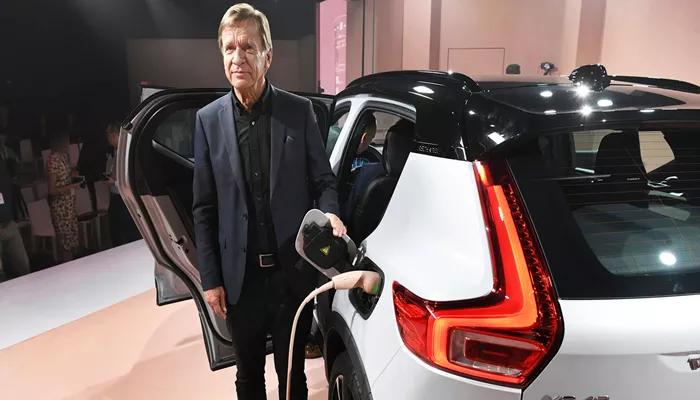(VOLCARb.ST) has unexpectedly appointed Hakan Samuelsson as its CEO, returning the industry veteran to the helm. Analysts and investors say his leadership will be crucial as the automaker faces U.S. President Donald Trump’s potential tariffs and challenges in transitioning to electric vehicles.
Samuelsson led Volvo from 2012 to 2022, revitalizing the brand and overseeing its initial public offering on the Stockholm Stock Exchange in 2021. During Trump’s first term, he guided Volvo through the establishment of a car assembly plant in South Carolina. This decision may prove critical if Trump enforces a 25% tariff on U.S. car imports on Wednesday.
His return contrasts with outgoing CEO Jim Rowan, who joined in 2022 from Dyson without prior experience in the car industry. Rowan had a background in consumer and technology sectors, and Volvo initially saw his expertise in digitalization, innovation, and supply chains as an asset.
Volvo Cars board Chair Eric Li, also known as Li Shufu, emphasized that Samuelsson’s experience is essential as the car industry becomes more complex. “We know Hakan Samuelsson as a very knowledgeable and experienced leader in the industry,” said Carina Silberg, head of Governance and ESG at Alecta, Volvo Cars’ fifth-largest shareholder.
Sverre Linton, chief legal officer of the Swedish Shareholders’ Association, which represents small investors, noted that while Samuelsson is experienced, he will need a strong strategy from the board to succeed.
The sudden leadership change surprised investors and analysts. However, many believe it reflects Volvo’s return to its core strengths. Samuelsson, now 74, will serve a two-year term while Volvo searches for a long-term successor.
Volvo’s shares, which have dropped nearly 70% since its 2021 listing, fell further on Monday to a record low. However, this decline aligned with a broader market dip in Stockholm, which was down nearly 2%.
Handelsbanken analyst Hampus Engellau called the move unexpected. “The share price has underperformed the automotive sector, but operationally, the company has done better,” he said.
Samuelsson’s return comes at a difficult time for Volvo’s parent company, China’s Geely (GEELY.UL), which owns 78.7% of its stock. Geely has been restructuring its holdings and recently replaced the CEO of its struggling EV brand, Polestar, with another industry veteran. Li Shufu faces pressure from investors and will attend Volvo’s annual shareholder meeting for the first time later this week. Advisory groups ISS and Glass Lewis have recommended against reelecting him as chair due to his poor attendance at Volvo’s board meetings over the past year.
BUYING TIME
Rowan’s appointment in 2022 coincided with significant shifts in the car industry. EU tariffs on Chinese-made electric vehicles forced Volvo to move production of its EX30 SUV from China to Belgium. Trump’s potential re-election adds further uncertainty regarding tariffs.
Rowan recently suggested that Volvo could increase production at its U.S. plant if Trump imposes new duties. Volvo is particularly vulnerable to these tariffs since, while it produces the EX90 SUV in South Carolina, most of its hybrid and electric models are still imported from Europe.
In September, weak EV demand forced Volvo to abandon its goal of becoming an all-electric brand by 2030. Last month, Rowan warned that Volvo might struggle to match its 2024 sales and profitability performance. Although the company has grown its sales, delays in key electric models, a price war in the EV sector, and slowing demand have weighed heavily on its stock.
Given these challenges, Handelsbanken analyst Engellau believes Samuelsson is a safe choice. “This is a very good temporary solution because Hakan was CEO for 10 years,” he said. “He knows the company well and many of the people.”
“Now they are buying time to find a new CEO,” Engellau added.

